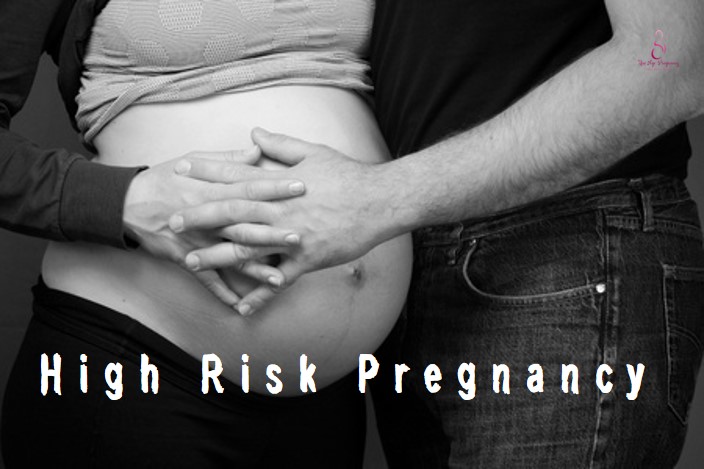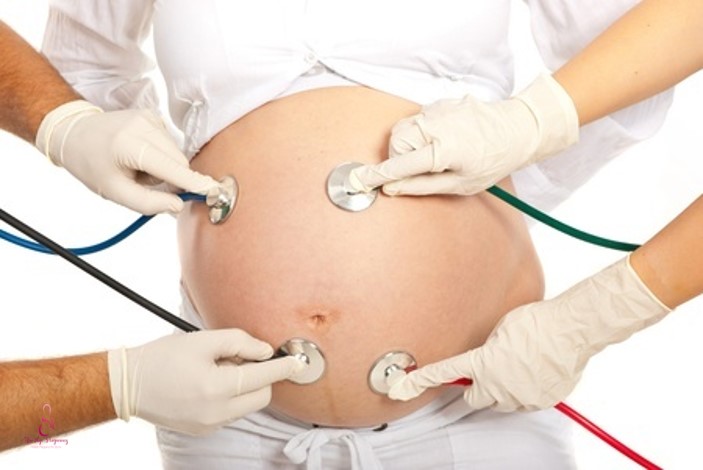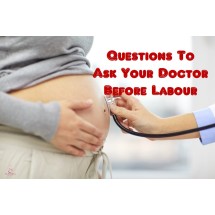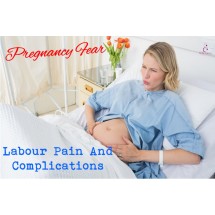
Your pregnancy can be a journey of joy and pain – from seeing your baby for the first time in an ultrasound scan, dealing with backaches and morning sickness, feeling your baby move inside you, to making unplanned discoveries about your pregnancy or your baby.
The last point can be especially painful if it catches you off-guard. Without sufficient knowledge to make a decision, it can leave you feeling overwhelmed and at a complete loss.
To protect yourself and your child, here are five things you should know about high risk pregnancies!
What is a high risk pregnancy and what are the factors that cause it?
A high-risk pregnancy is defined as the probability of the mother or her child experiencing health complications. This is often determined on a variety of factors such as age, weight, existing medical conditions, genetics, and history of complications during previous pregnancies.
For example, underweight or obese mothers, as well as mothers with existing conditions like diabetes or high blood pressure might face complications during pregnancy. Another common indicator of possible complications would be problems during previous pregnancies, or genetic conditions that have been passed down from previous generations. Pregnancy risks increases with age. As such, mothers who give birth over the age of 35 are at higher risk of giving birth to a baby with physical or chromosomal abnormalities.

What are the possible types of complications that can develop?
Complications vary from mild conditions such as blood clots, which are treatable. However, more serious types of complications may result in birth defects or miscarriages. At this point, your doctor will be a valuable source of information and will be the best person to advise what your next step should be. Ensure that you continue to communicate any changes, developments or concerns with your doctor at all stages of your pregnancy.
Your doctor will also walk you through the preparations you need to do, including which prenatal tests are available for expecting mothers like you. Some of these tests may be part of the standard routine checks such as the Nuchal Translucency (NT) test and the First Trimester Screening (FTS), while others, such as Chorionic Villus Sampling (CVS) and Amniocentesis may be recommended if the routine tests return an abnormal result.
Non-invasive prenatal tests (NIPTs) are increasingly used as a screening test to detect abnormalities in unborn children. NIPTs can identify genetic disorders, such as Down Syndrome and Edwards Syndrome. CVS and Amniocentesis carry a certain risk of miscarriage since they involve the insertion of a needle into the uterus, whereas NIPTs pose absolutely no risk since they only require a blood sample from the mother.
How can my doctor help me if I’m an at risk mother?
Your doctor will be in the best position to address your queries and concerns – right down to the types of prenatal tests you should take. Knowing your options, understanding whether you are more comfortable with a screening test like the NIPT or a diagnostic test like Amniocentesis, and being familiar with the risks involved are all important steps that cannot be rushed.
Maintain open communication with your doctor so that he/she can advise you through your pregnancy. Sometimes the advice you find online may be confusing and contradicting, and your doctor would know best how to put it into context for you.

What should I do if I think I’m at risk?
First of all, remain calm. Even if you are at risk, it does not translate to a 100% chance that complications will surface. Nothing is definite and a problem free pregnancy is still in sight. Seeking a second (or even third) opinion and doing research are just some of the ways you can deal with your uncertainty of what you should do next.
Apart from just taking the relevant prenatal tests, it is vital that you continue to keep yourself healthy by drinking adequate amounts of water, sticking to a healthy diet and even taking relevant health supplements, such as vitamins and folic acid.
Getting plenty of rest and abstaining from unhealthy habits such as drinking alcohol and smoking are also necessary measures to preserve a healthy pregnancy. Regular light exercises, as well as birthing or cooking classes, are things you can consider to prepare yourself better for motherhood.
Thanks to the Internet, there is a wide array of websites and forums that provide useful platforms for mothers to share their stories and experiences, although mothers should practise discretion when reading about these stories since each individual’s experience is unique. Your doctor remains as one of your most reliable sources of information.
If you have reasons to believe that you are in any of the high risk groups, have pre-existing health conditions, experienced complications during previous pregnancies, are above the age of 35, or simply can’t stop worrying, speaking to your doctor would be best to ease your worry.
What do I do if I can’t stop worrying?
You are not alone – it is completely natural for mothers-to-be to fret about the precious life growing inside them. However, it is important to get the answers that can help quell these worries as soon as possible so that they don’t overwhelm you. Prenatal testing is one avenue that you can turn to.
Even if you do receive information or results indicating possible challenges in your pregnancy, you should not jump to conclusions — it is highly possible that even though you fit the criteria of mothers who are more prone to experiencing a high risk pregnancy, you may end up having a perfectly healthy baby. Remaining calm and stress-free helps to prevent additional health problems, which is why it is vital that mothers stay well-informed and in control of the situation. Learn how you can manage stress during pregnancy.
Discovering that your pregnancy may be high risk can be a nerve-wracking experience, but you do not have to go through it alone. There are plenty of resources and reliable individuals that you can turn to with your questions, concerns, or even draw support and encouragement – family, friends, doctors and even online sources can definitely serve as the pillars to lean on as you embark on this exciting voyage towards becoming a new mother.
This article is contributed by iGene®
iGene® is a safe, highly accurate and non-invasive prenatal test that analyses cell-free DNA present in the maternal bloodstream. Using cutting-edge Next Generation Sequencing (NGS) technology, it detects chromosomal abnormalities such as Down syndrome, Edwards syndrome, and Patau syndrome, as well as sex chromosome abnormalities such as Klinefelter and Turner Syndrome. It delivers definitive results with more than 99% accuracy rate. iGene® is currently available in Singapore, Malaysia and Australia.






